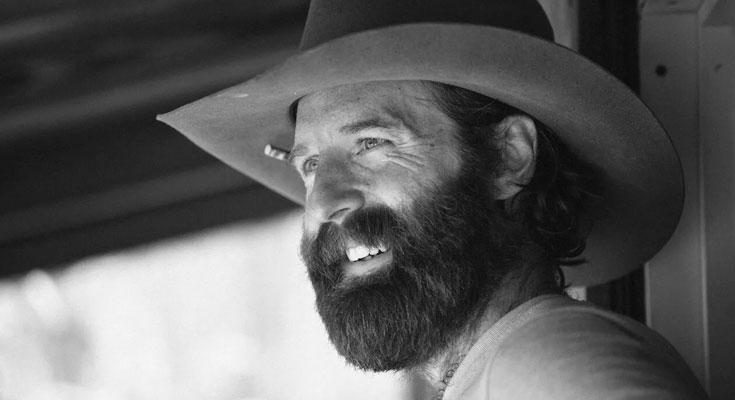By Sean Dietrich, Sean of the South
The sky above Surry County, North Carolina, smells of burnt wood and heavy soot tonight. The atmosphere is hazed with a melancholy brown smoke and the forest is eerily calm. The chestnut oaks and the pitch pines creak from the dryness of the air.
And a wildfire on Pilot Mountain rages on. The fire started Saturday.
From a distance, the top of the mountain looks like a glowing ember of Kingsford charcoal. Three hundred acres have been consumed, and that number will have grown by the time you read this.
Andy Griffith was born and bred in Surry County, just 14 miles up the road in the hamlet of Mount Airy, otherwise known as Mayberry.
Pilot Mountain State Park is a magnificent place. The Yadkin River, one of the longest rivers in the Old North State, weaves directly through the pine-choked corridor of the park before easing its way into South Carolina.
There are trails here with overlooks pretty enough to compromise the well-being of a cardiac patient. On a clear day, you can stand atop Pilot Mountain and see halfway to Fiji.
Simply put, this is God’s country. Meanwhile, atop this 2,421-foot flaming quartzite rock, fire crews work incessantly, battling wind changes and dry conditions, trying to contain hell.
These are men and women who will likely receive no public recognition for their bravery. Which isn’t unusual in their line of work. Firefighters, like all public servants, are accustomed to being overlooked.
One of my longtime friends is a career fire medic. He says, “We fly under the radar. I won’t say that we’re overlooked, but most people don’t really stop and think about what we do. But hey, it’s okay, we’re not doing this for the press.”
Right now, there are 29,705 fire departments in the Lower Forty-Eight. There are roughly 1,115,000 career and volunteer firefighters in the U.S., an estimated 93,000 are female. The Forest Service employs another 10,000 firefighters for responding to wildfires.
These are living comic-book heroes minus the Spandex. They reside in your town, in your neighborhood, they sit in the pew beside you, their dogs go potty in your yard
No, you probably won’t see their faces on the national news, but you can see them in the supermarket. Or at Friday-night ball games, sitting in the bleachers, cheering loudly for their sophomores.
They look just like you and me, except they aren’t like you and me at all. They are first responders who willingly and repeatedly endanger their lives. What’s more, for many of them, this fatally dangerous occupation is a volunteer gig.
And they’re good at what they do.
In 2019 there were 1,291,500 fires in this country. The fires collectively caused about 14.8 billion dollars in property damage. That’s billion with B. But here’s the thing: Out of all those fires, there were only 3,704 fire-related deaths. Why so few?
Firefighters. These men and women are not only doing their jobs, they’re writing the manual on the profession.
In a way, the Pilot Mountain fire is an eerie reminder of the Smoky Mountain wildfires from five years ago. I was working in the area during the Smoky fires. I’ll never forget it.
Almost overnight the air turned to ash and the sky became black. The roads were blocked with emergency crews lining the highways. I couldn’t breathe right for two months because of all the smoke.
To call the Great Smoky fires “bad” would be an understatement. The fires were scenes straight from Dante’s bestseller.
In roughly a month, the Smoky Mountain fires consumed about 10,000 acres, making the wildfires the deadliest in Eastern U.S. history since 1947. And yet—here is my point—only 14 people died.
How is this possible? How could such a large fire claim so few? How could this be, especially when you consider that thousands were displaced from homes, and hundreds of brick-and-mortar structures were burned to powder?
Fire crews, baby. That’s how. It took roughly 800 firemen and firewomen to help contain the fires in Gatlinburg alone.
Ironically, last night when the fire began on Pilot Mountain, Mount Airy was holding its annual Christmas parade. The festive floats rolled down the main drag, lit up for the holidays.
It was your typical small-town event. High school bands marched, the public safety vehicles cruised by at point-two miles per hour, and a middle-aged guy dressed like Santa did the screwdriver wave to his fans.
But atop Pilot Mountain the NC Forestry Service, the Pilot Mountain State Park Rangers, and a slew of volunteer fire departments from Pinnacle, South Surry, Double Creek, Westfield, Bannertown, Shoals, and Fall Creek, were doing their jobs to make the world a safer place.
Firefighters do this kind of thing every day, every month, every year, in Everytown, USA. Career fire workers, fire medics, and firefighting volunteers are always on standby to make sure your family is okay.
Although they blend with the rest of America, you come in contact with them more often than you realize. You see their pumper trucks rolling on the highway. You ride past their firehouses and see the garage doors slung open, their turntable ladders ready for business. You know them.
So if you get a chance this week, thank these men and women for their service. I promise that your gratitude will surprise them.
Because as I say, they don’t do it for the press.
Sean Dietrich is a columnist and novelist known for his commentary on life in the American South. He has authored nine books and is the creator of the “Sean of the South” blog and podcast. The views and opinions expressed here are those of the author and do not necessarily reflect the policy or position of 1819 News. To comment, please send an email with your name and contact information to: Commentary@1819News.com










